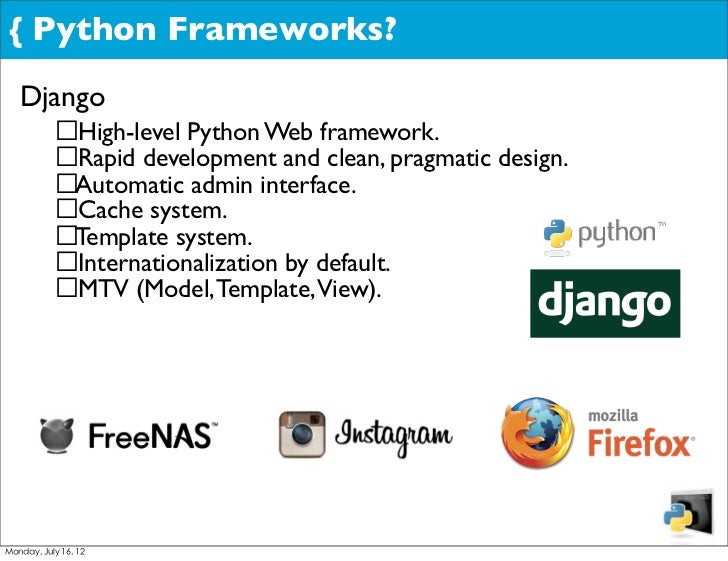Python Template System
Is there a template system for Word documents like Cheetah/Genshi? What I really want is effectively a template system. My python code grabs the data and dumps. A web template system is used in web publishing to allow web designers and developers to work with web templates for the automatic generation of custom web pages, such as the results from a search.
Overview Using the template system in Python is a three-step process: • You configure an. • You compile template code into a. • You render the template with a.
Django projects generally rely on the for each of these steps instead of the template system’s lower level APIs: • For each backend in the setting, Django instantiates an. Wraps and adapts it to the common template backend API. • The module provides functions such as for loading templates.
They return a django.template.backends.django.Template which wraps the actual. • The Template obtained in the previous step has a method which marshals a context and possibly a request into a and delegates the rendering to the underlying. Configuring an engine If you are simply using the backend, this probably isn’t the documentation you’re looking for.

An instance of the Engine class described below is accessible using the engine attribute of that backend and any attribute defaults mentioned below are overridden by what’s passed. Class Engine( dirs=None, app_dirs=False, context_processors=None, debug=False, loaders=None, string_if_invalid=', file_charset='utf-8', libraries=None, builtins=None, autoescape=True) When instantiating an Engine all arguments must be passed as keyword arguments: • dirs is a list of directories where the engine should look for template source files.
Dvblink Keygen Download Sony. It is used to configure. It defaults to an empty list.
• app_dirs only affects the default value of loaders. It defaults to False. • autoescape controls whether HTML autoescaping is enabled. It defaults to True. Ferrari Edition Traffic Assist Pro 7929 Tmc Update Safari.
Warning Only set it to False if you’re rendering non-HTML templates! • context_processors is a list of dotted Python paths to callables that are used to populate the context when a template is rendered with a request.
These callables take a request object as their argument and return a of items to be merged into the context. It defaults to an empty list. See for more information.
• debug is a boolean that turns on/off template debug mode. If it is True, the template engine will store additional debug information which can be used to display a detailed report for any exception raised during template rendering. It defaults to False. Nanase Aikawa Red Zipper.
• loaders is a list of template loader classes, specified as strings. Each Loader class knows how to import templates from a particular source. Optionally, a tuple can be used instead of a string. The first item in the tuple should be the Loader class name, subsequent items are passed to the Loader during initialization. It defaults to a list containing: • 'django.template.loaders.filesystem.Loader' • 'django.template.loaders.app_directories.Loader' if and only if app_dirs is True. If debug is False, these loaders are wrapped in. See for details.